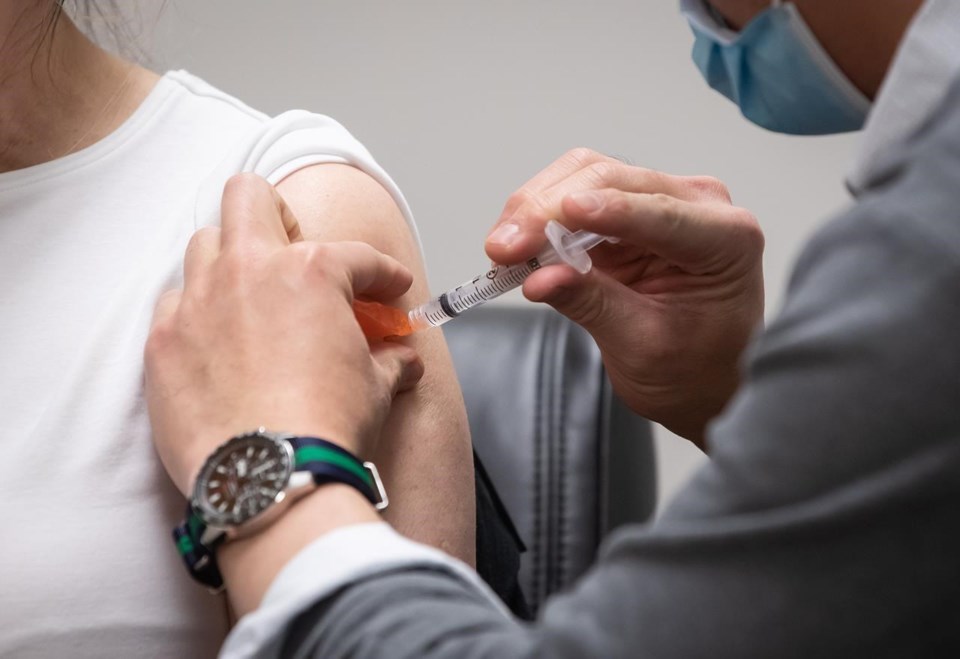VANCOUVER — British Columbia's provincial health officer says she expects the province to catch up to Ontario in the proportion of COVID-19 cases from the variant first identified in the United Kingdom.
Dr. Bonnie Henry said about a third of B.C.'s cases are from that variant, while the strain represents about 60 per cent of Ontario's cases, but she expects B.C. to match that figure in about a month.
"When (the variant) gets that competitive advantage, it can spread more easily. It's the one that tends to increase more rapidly," she told a news conference Tuesday.
Henry said the variants are worrying but of the 3,766 total variant cases, only 266 are active, representing about three per cent of the active cases in B.C.
She acknowledged the low number of active cases is partly due to the province's delay in reporting variants of concern. B.C. only reports these cases once they are confirmed through whole-genome sequencing, a process that Henry said can take several days.
She also said while the variant that first emerged in the U.K. is the most prevalent in B.C., the strain first detected in Brazil has been increasing in recent weeks and a high percentage of that variant has been associated with Whistler, starting in mid-to-late February.
"There was a lot of transmission happening in young people and people who were visitors to Whistler, as well," she said. "It was likely that visitors from other parts of Canada initially introduced that strain."
However, she added that the cases involving the strain first seen in Brazil are still a small percentage of the COVID-19 cases in Whistler overall. Those cases peaked around March 22 and public-health teams are stopping the chains of transmission, she said.
The province reported 1,068 new COVID-19 cases on Tuesday and three additional deaths. There were 328 people in hospital and 96 of them were in critical care. It reported 207 new variant cases.
Of the people in hospital, 42 have the variant first detected in the U.K., 20 the strain that emerged in Brazil, and one has the variant that was first identified in South Africa, Henry said.
She said a lot of the recent increased transmission is being driven by social gatherings where people disregard public health orders. People may be sticking to small groups, but are meeting repeatedly with different small groups, Henry said.
This is notable among young people because they may work at ski hills or restaurants and live with roommates, she said.
"It has been a very hard and long year and it is discouraging to see the surge that we're experiencing right now," she said.
"I know people are doing their best and we have to deal with what we have right now. We'd all wish it to be different. ... The virus is adapting and is taking advantage wherever it can and it isn't fair."
Henry said while B.C. will be in a different position by the end of the summer, not enough people are protected by vaccines right now and public health orders must be followed.
B.C. also launched its online booking system on Tuesday as it shifted into the third phase of its vaccine rollout.
The system requires people to register first to get a confirmation code, then book an appointment for a shot when they are contacted by email, text or phone.
Starting Tuesday, people born in 1950 or earlier, Indigenous people 18 and older, and those who have certain medical conditions were able to book their appointments through the online portal.
Those aged 55 to 65 and living in the Lower Mainland also have the option of booking at pharmacies to get an Oxford-AstraZeneca vaccine as part of a parallel program.
Health Minister Adrian Dix said by mid-afternoon, about 160,000 residents had registered for their vaccine through the new booking system and almost 24,000 appointments were scheduled.
The province had administered 912,056 doses of COVID-19 vaccine on Tuesday, mostly first doses. Dix said 19.2 per cent of the 4.2 million eligible residents have had their first dose.
He said the past weekend was a "very challenging" after the province set a daily record of 1,077 new cases on Saturday.
"It's us and the vaccine against COVID-19. That fact has never been clearer."
This report by The Canadian Press was first published April 6, 2020.
Laura Dhillon Kane, The Canadian Press



